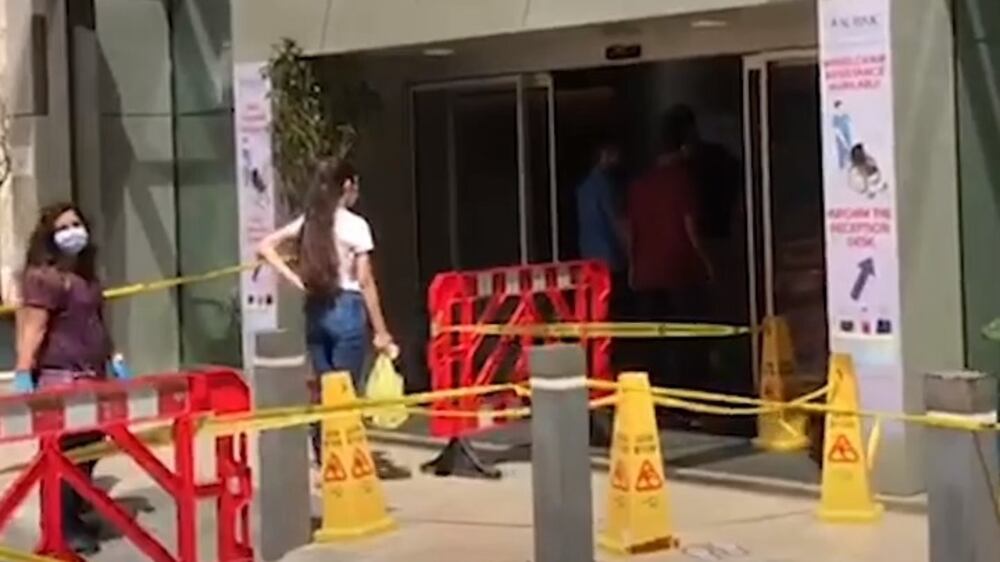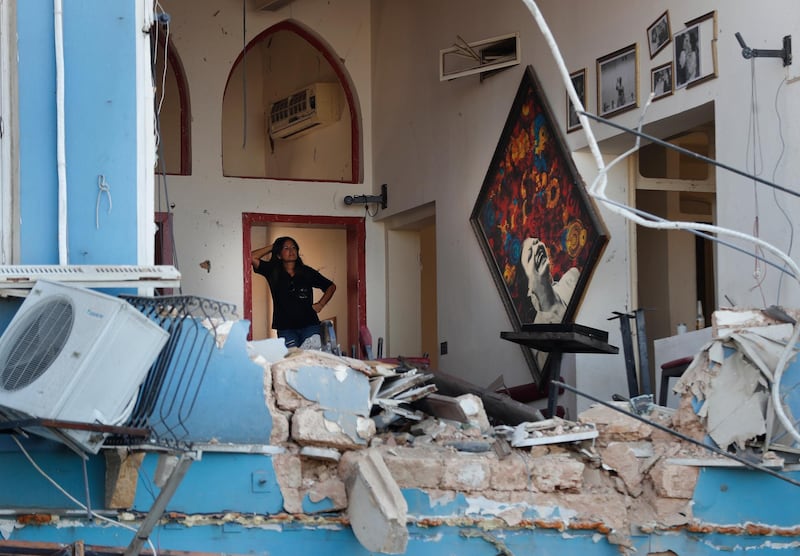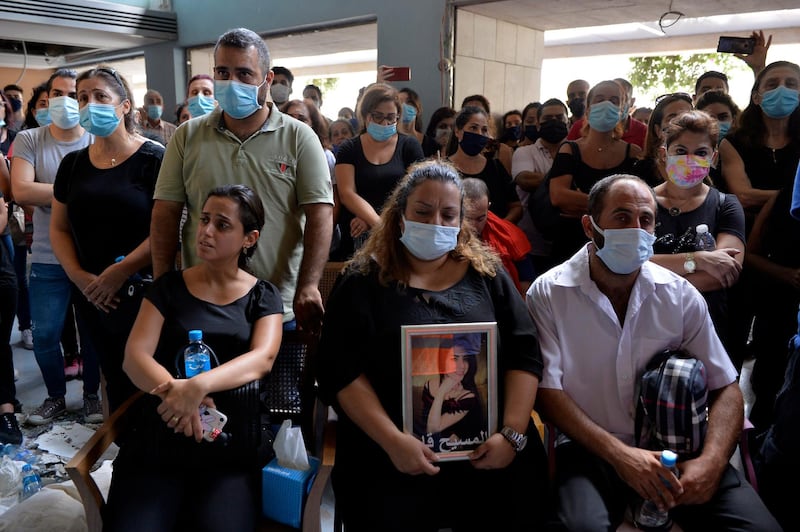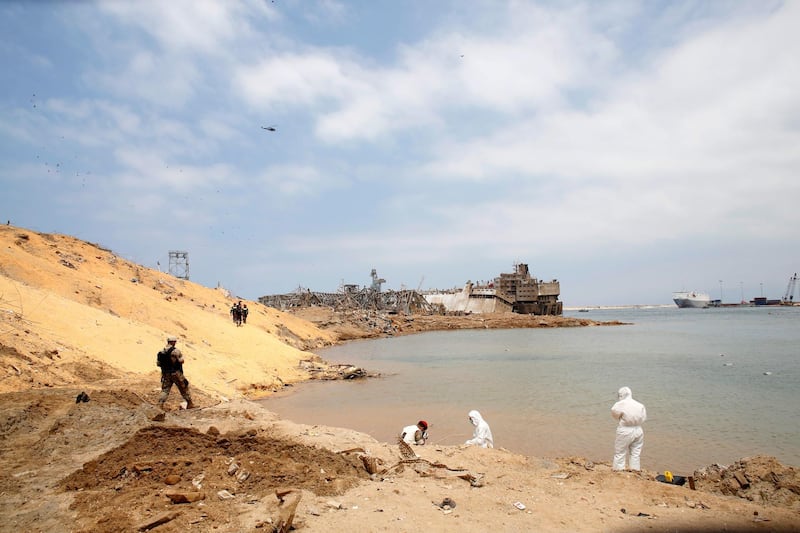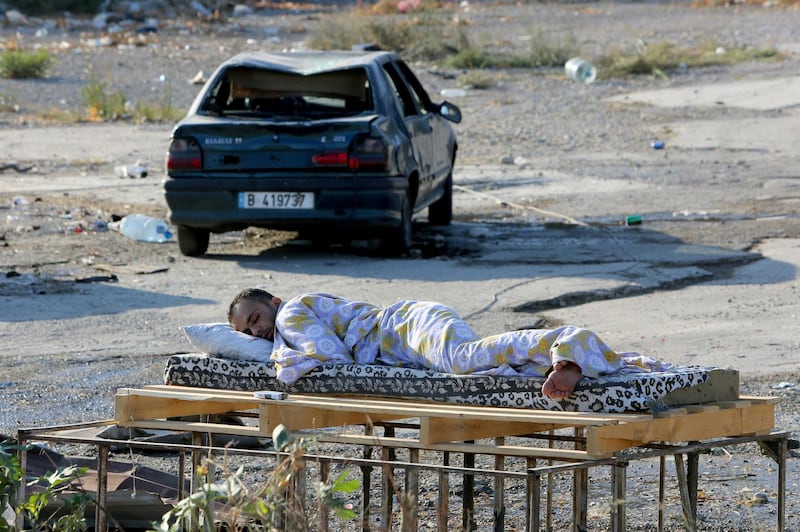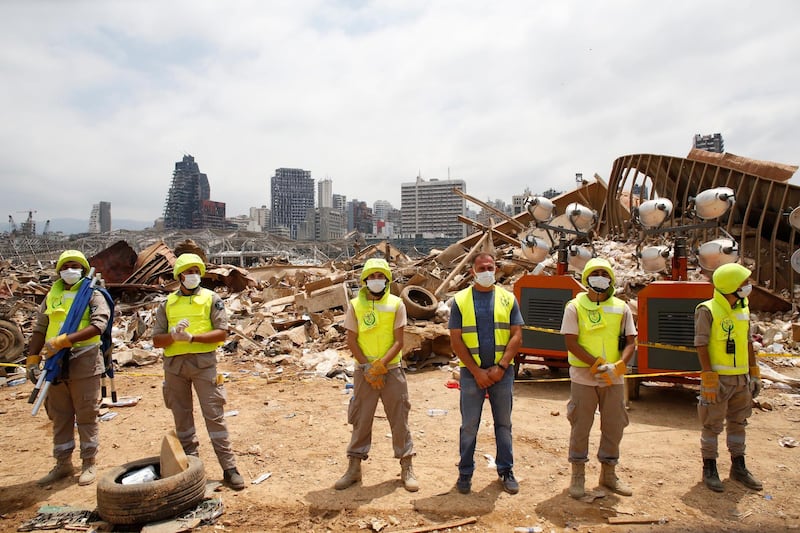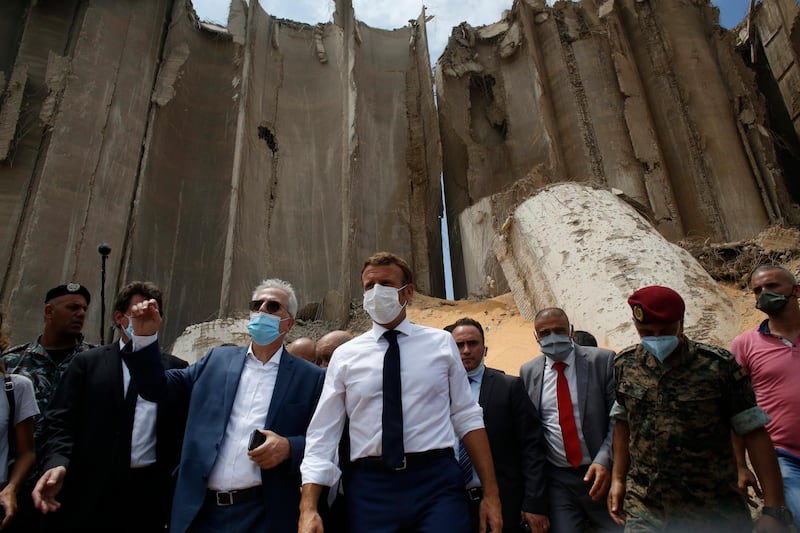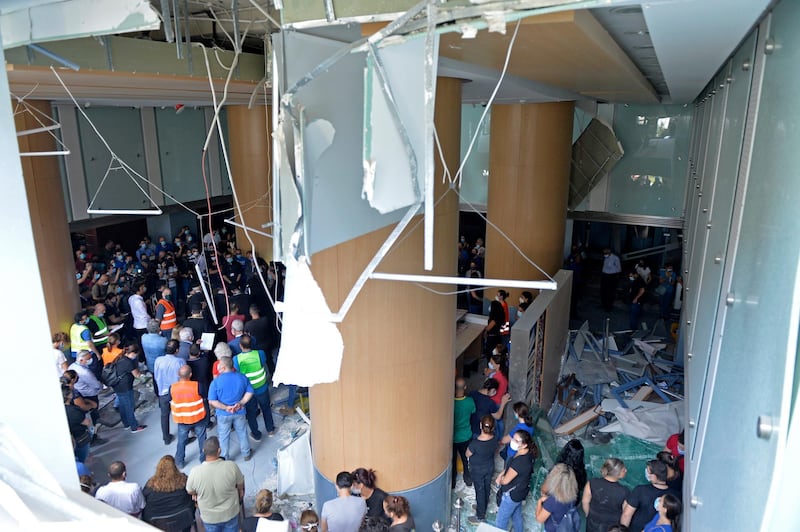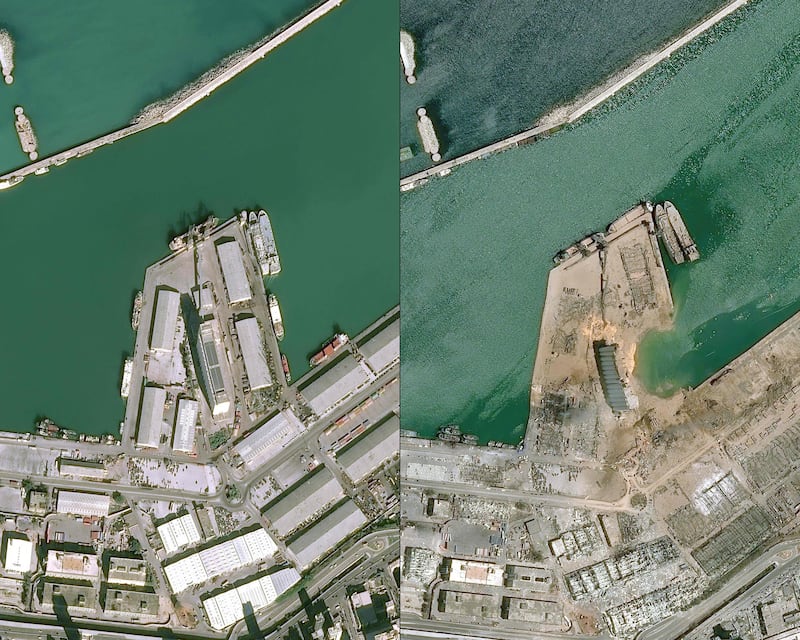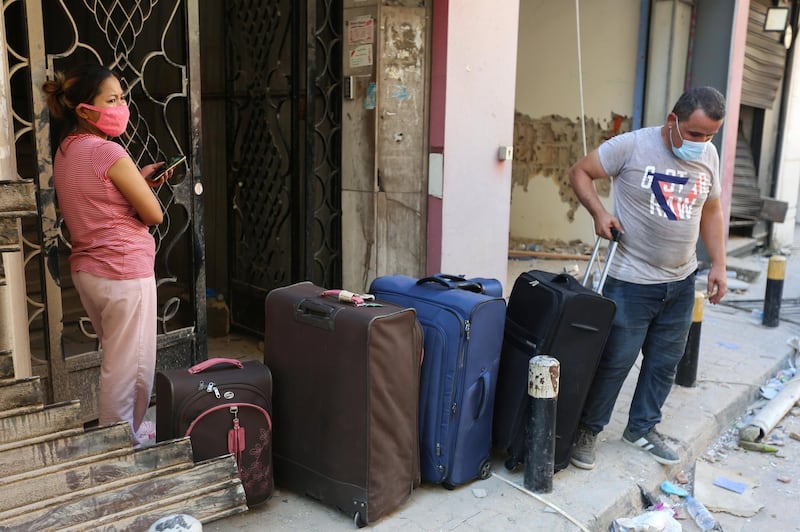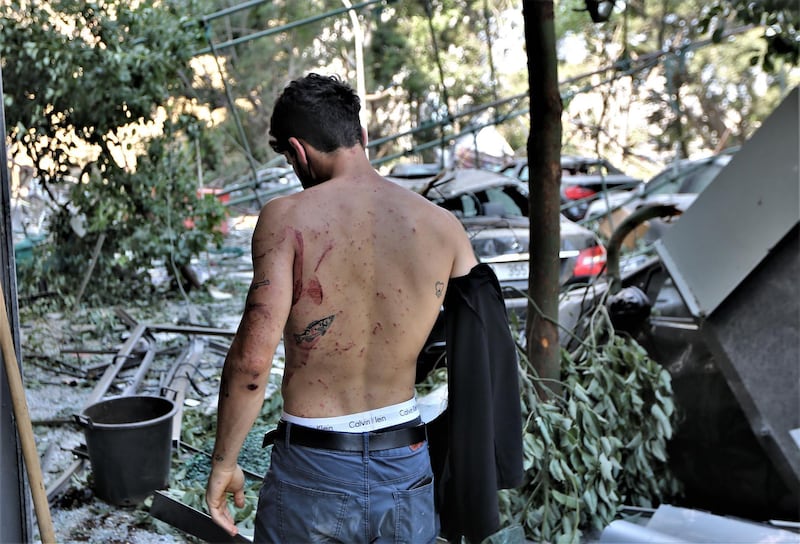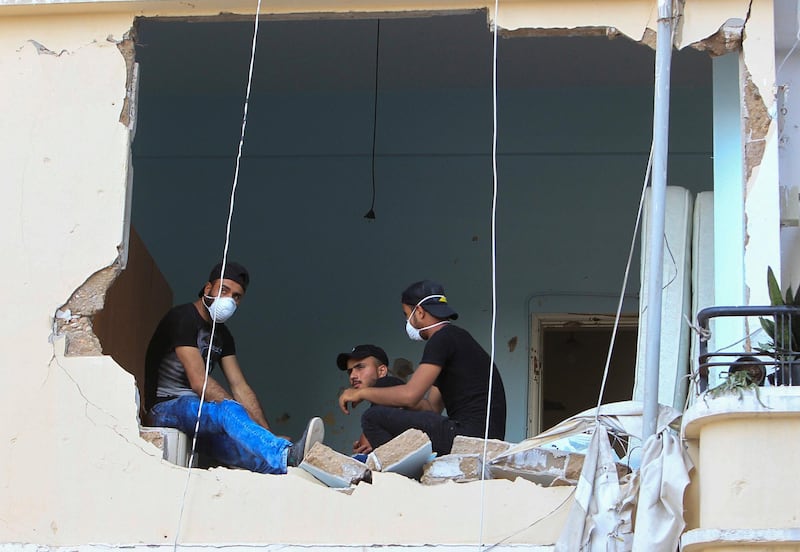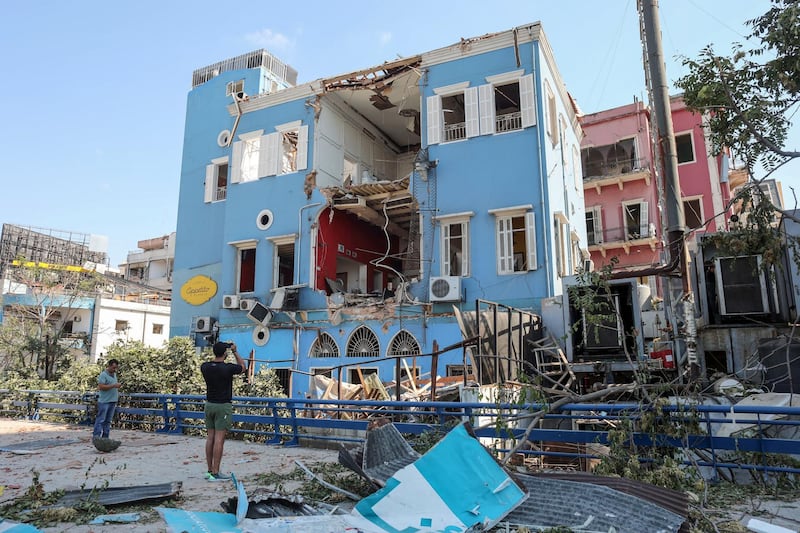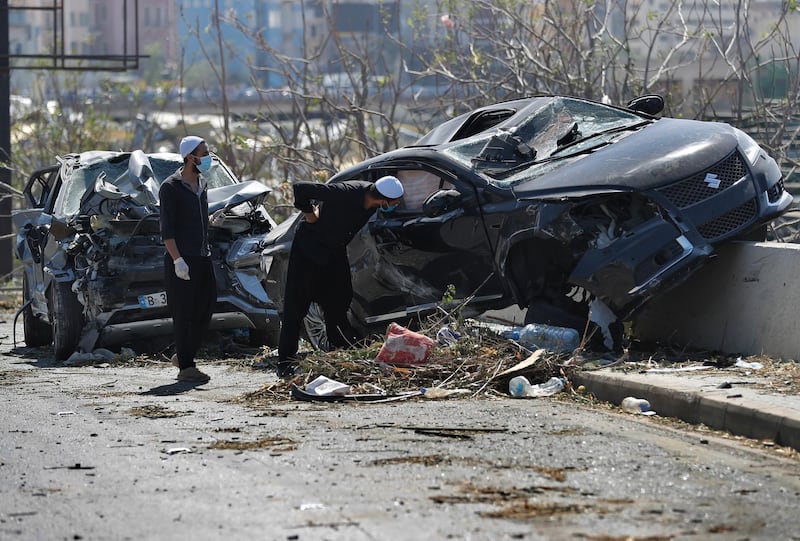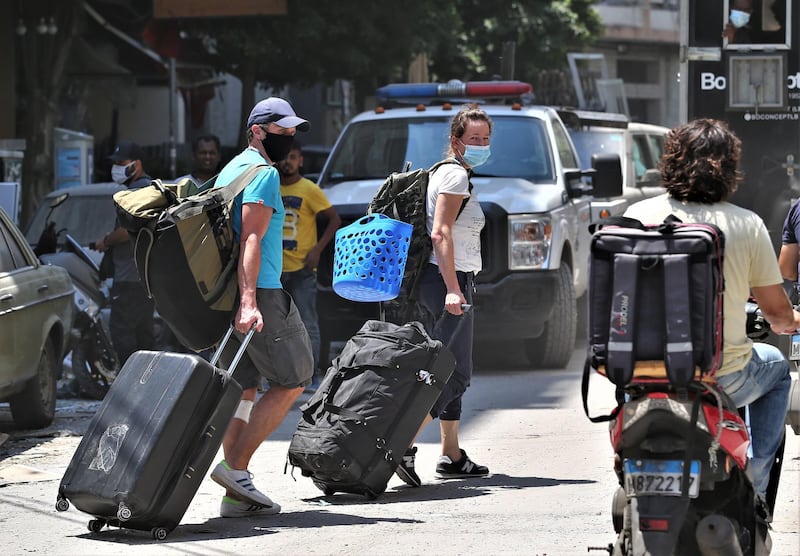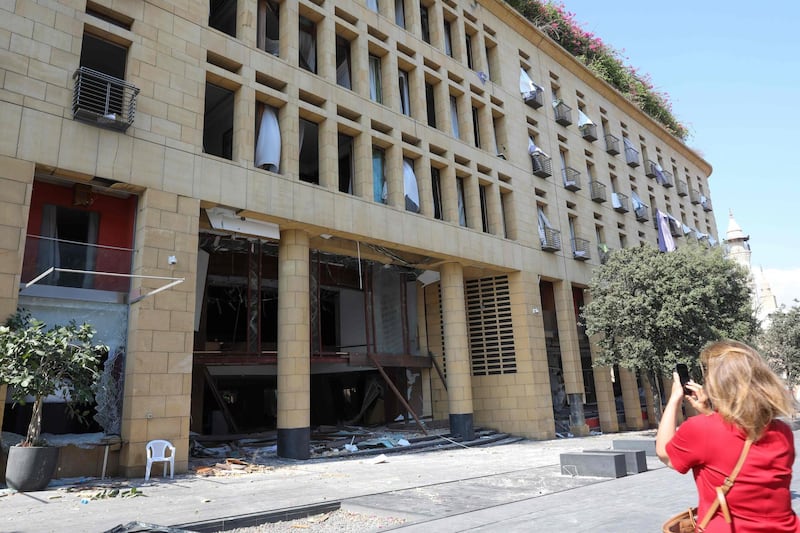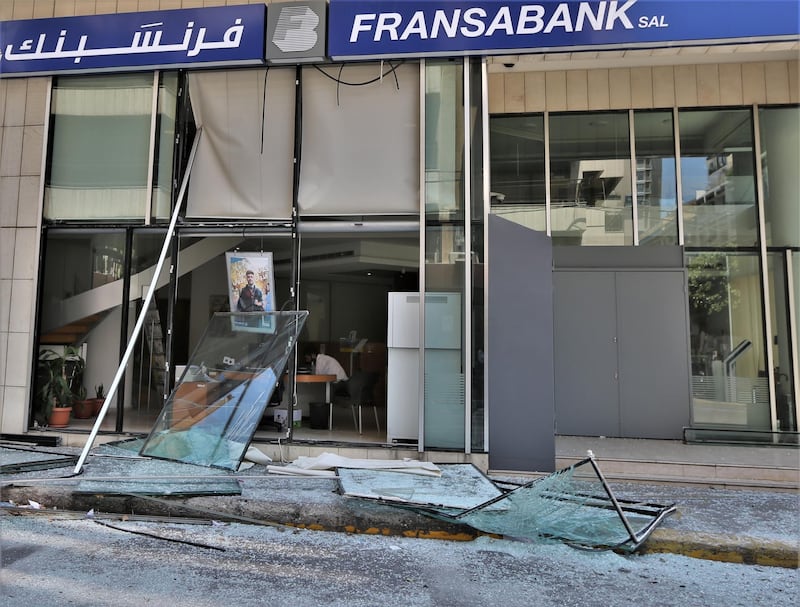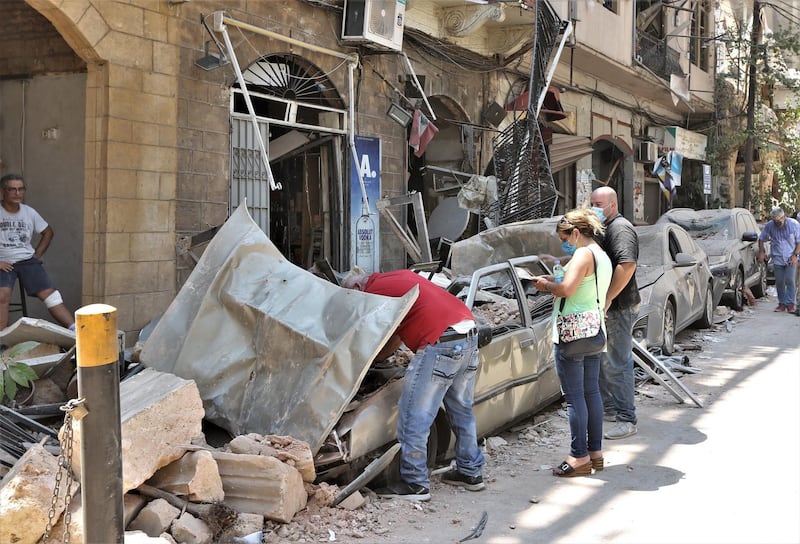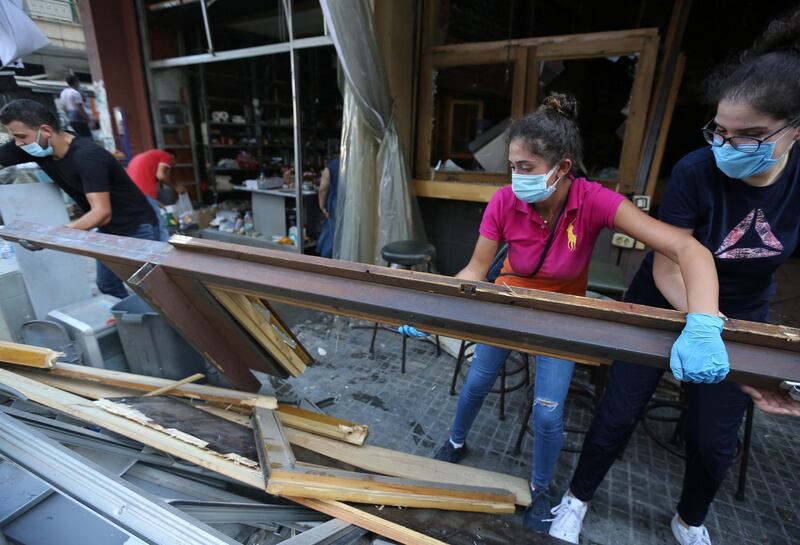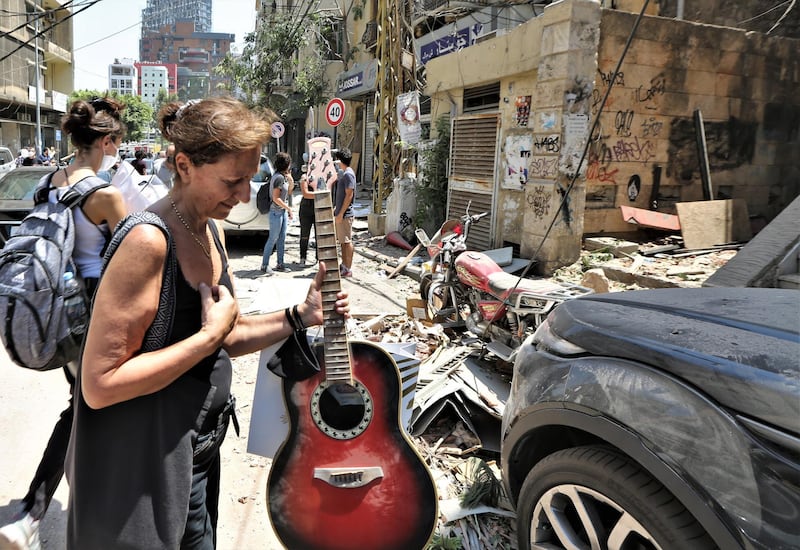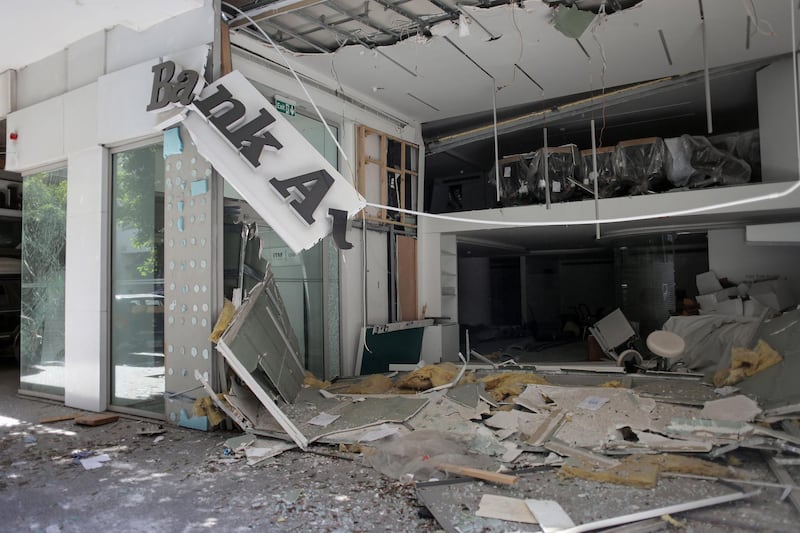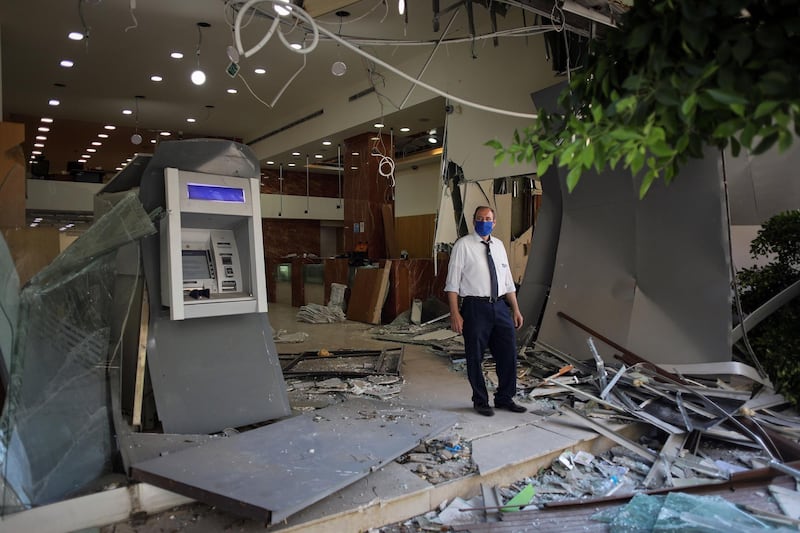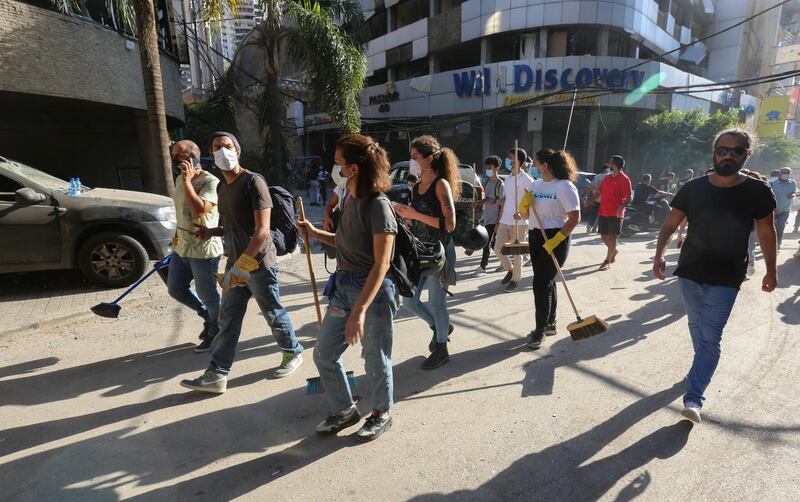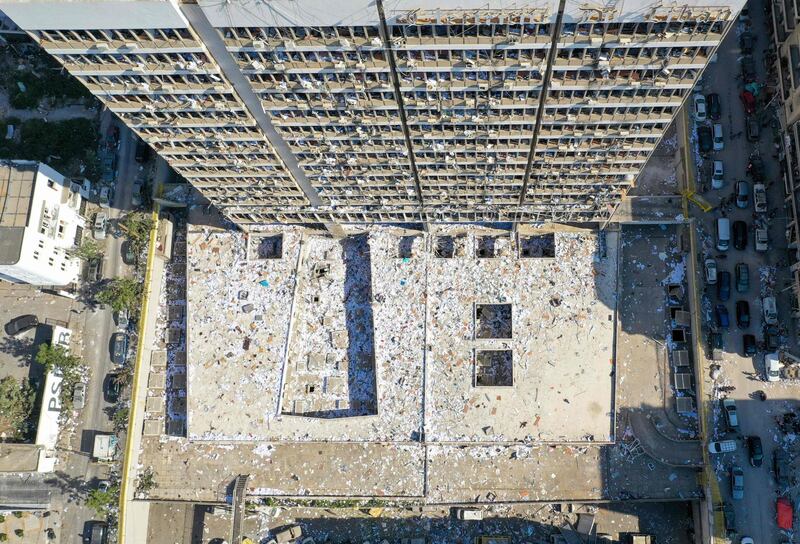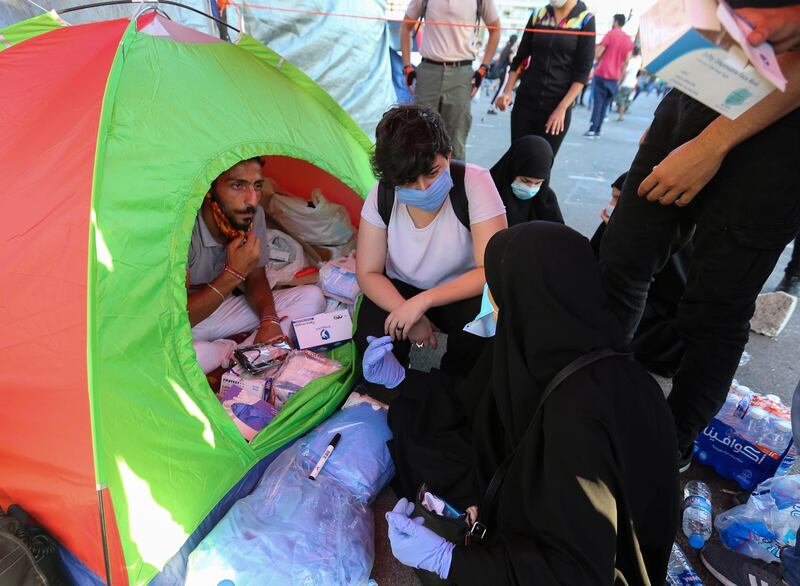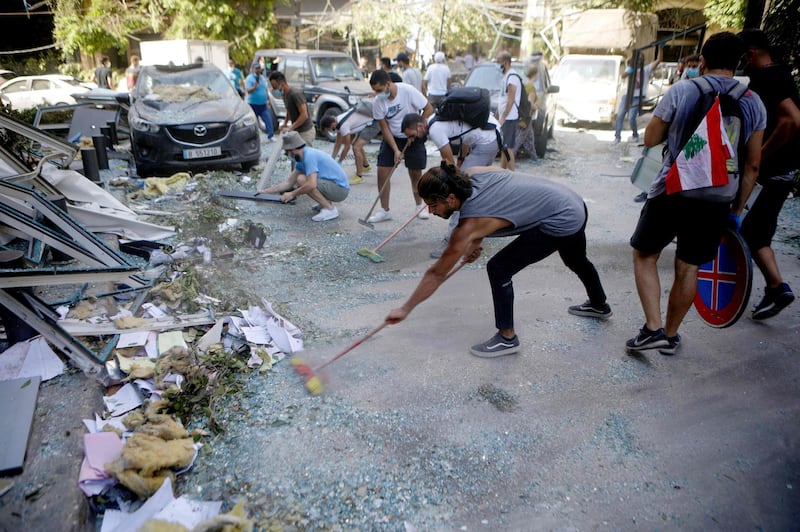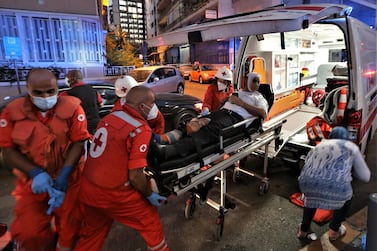It was her day off on Tuesday and nurse Jana Abla had driven to the family’s south Lebanon home town of Marjayoun when the huge blast ripped through Beirut port. In seconds, thousands were wounded and dozens were killed.
Despite being hours away from the capital, Jana jumped into action.
"I was watching TV with my mother and I saw that something big was happening. I could not see such a thing going on and not do anything, I had to act," Jana, 29, tells The National.
She drove as fast as she could back to Beirut, straight to her hospital in the Metn district on the outskirts. Walking in, she was hit by the scale of the disaster.
“When I arrived at the hospital’s emergency room, I saw mass casualties,” she recalls. “Blood was everywhere.”
Jana says she has never seen such a volume of injuries and patients in her seven years as a nurse.
“We were out of places, stretchers and chairs. We had people sitting on the floor receiving treatment,” she says.
“Definitely that was a day to be remembered in my professional career. The experience I lived through was not like anything I have experienced in my seven years of work … The scene in front of me was painful.”
The massive explosion obliterated Beirut port and devastated much of the capital. More than 135 people have been reported dead so far and over 5,000 were injured. The number of casualties continues to rise.
Jana’s hospital was not affected by the blast, but it was quickly flooded with cases.
Several major downtown medical centres were badly damaged by the explosion and the city’s hospitals were quickly overwhelmed. Patients have been diverted to hospitals outside the capital and other countries have sent field hospitals and doctors to help relieve the pressure.
Despite the scale of casualties, Jana says the doctors, nurses and medical staff worked fast and as a team. “We needed to save people, each one of us had to do something … all departments were working together.”
The Beirut port explosion has come at a time when Lebanon is already facing dire setbacks. The healthcare system was already creaking under the weight of an economic collapse and the Covid-19 pandemic – which has seen a surge in cases in recent weeks.
“There is a saying that there is no emergency in a pandemic, but what if there is a disaster in a pandemic,” Jana asks.
She hopes the pandemic and the blast will make people think more about doctors and nurses, who often face abuse on the job, and hospitals that are struggling financially.
“People are starting to recognise what our role is, and the image is changing. People are starting to show their gratitude when we need it the most.”
